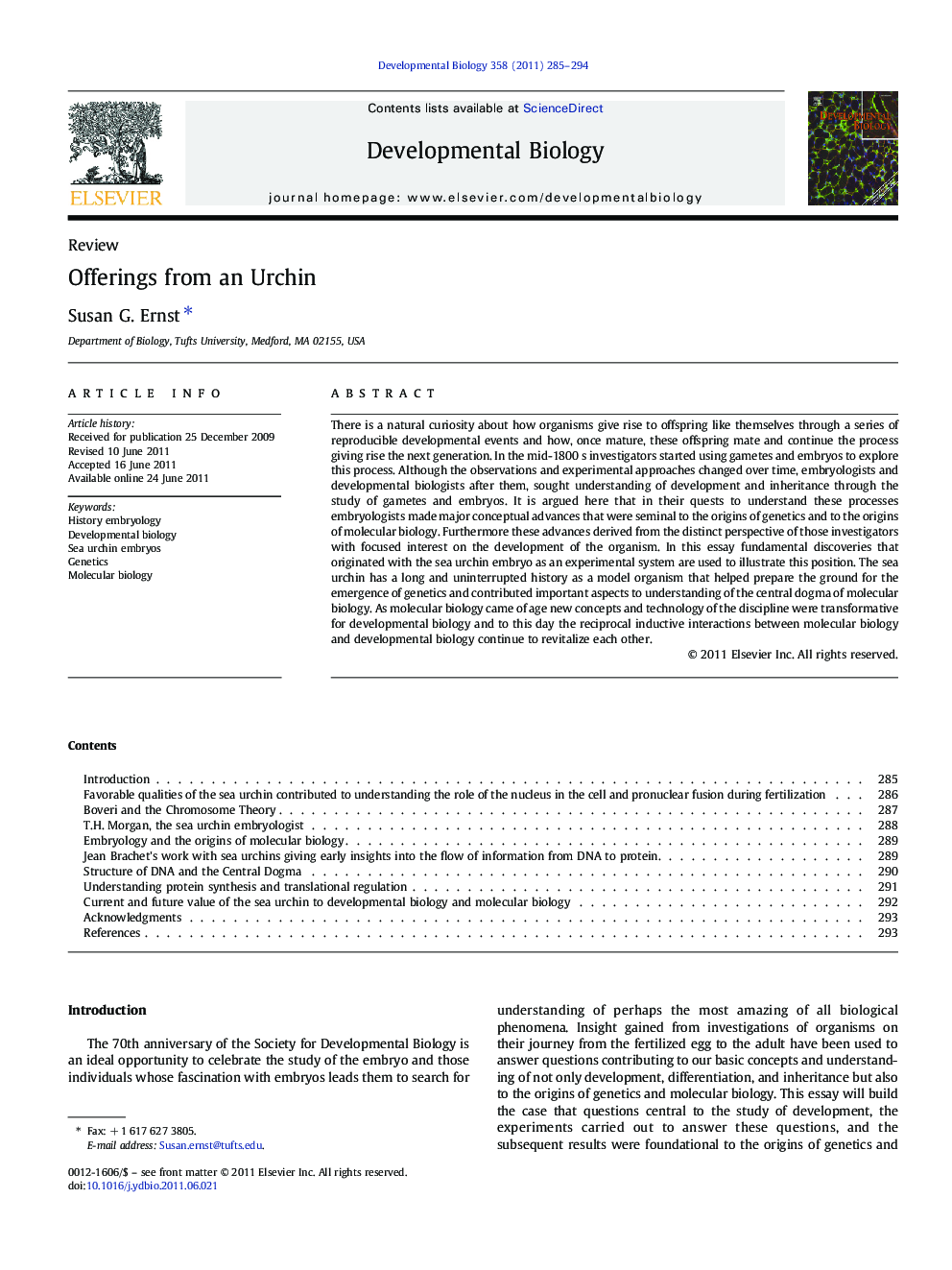| Article ID | Journal | Published Year | Pages | File Type |
|---|---|---|---|---|
| 2173453 | Developmental Biology | 2011 | 10 Pages |
There is a natural curiosity about how organisms give rise to offspring like themselves through a series of reproducible developmental events and how, once mature, these offspring mate and continue the process giving rise the next generation. In the mid-1800 s investigators started using gametes and embryos to explore this process. Although the observations and experimental approaches changed over time, embryologists and developmental biologists after them, sought understanding of development and inheritance through the study of gametes and embryos. It is argued here that in their quests to understand these processes embryologists made major conceptual advances that were seminal to the origins of genetics and to the origins of molecular biology. Furthermore these advances derived from the distinct perspective of those investigators with focused interest on the development of the organism. In this essay fundamental discoveries that originated with the sea urchin embryo as an experimental system are used to illustrate this position. The sea urchin has a long and uninterrupted history as a model organism that helped prepare the ground for the emergence of genetics and contributed important aspects to understanding of the central dogma of molecular biology. As molecular biology came of age new concepts and technology of the discipline were transformative for developmental biology and to this day the reciprocal inductive interactions between molecular biology and developmental biology continue to revitalize each other.
► Embryology using sea urchin as example, contributes to origins of genetics and molecular biology. ► Understanding role of nucleus, pronuclear fusion, chromosome theory foundational to genetics. ► Brachet's early work on information flow from DNA to proteins molecular biology. ► Protein synthesis and translational control central dogma of molecular biology. ► Sea urchin embryo still useful in genetics and molecular biology.
